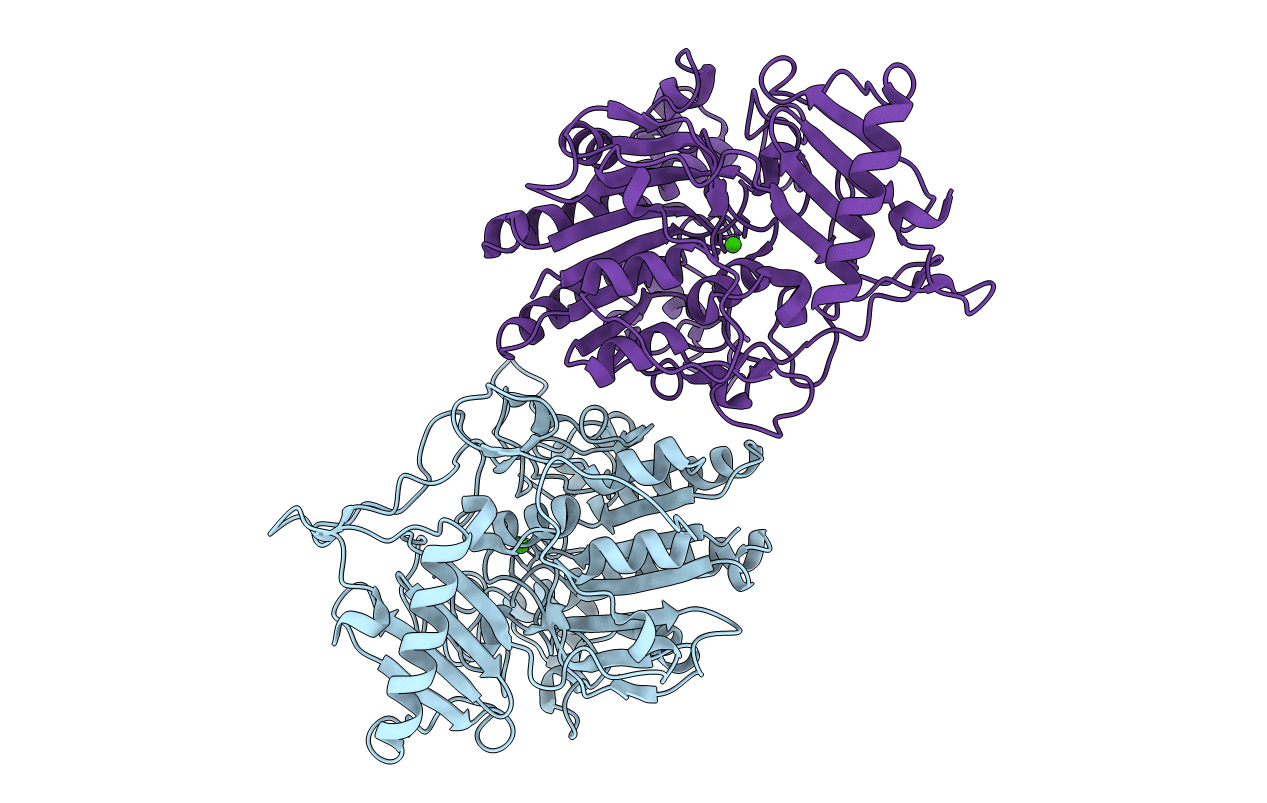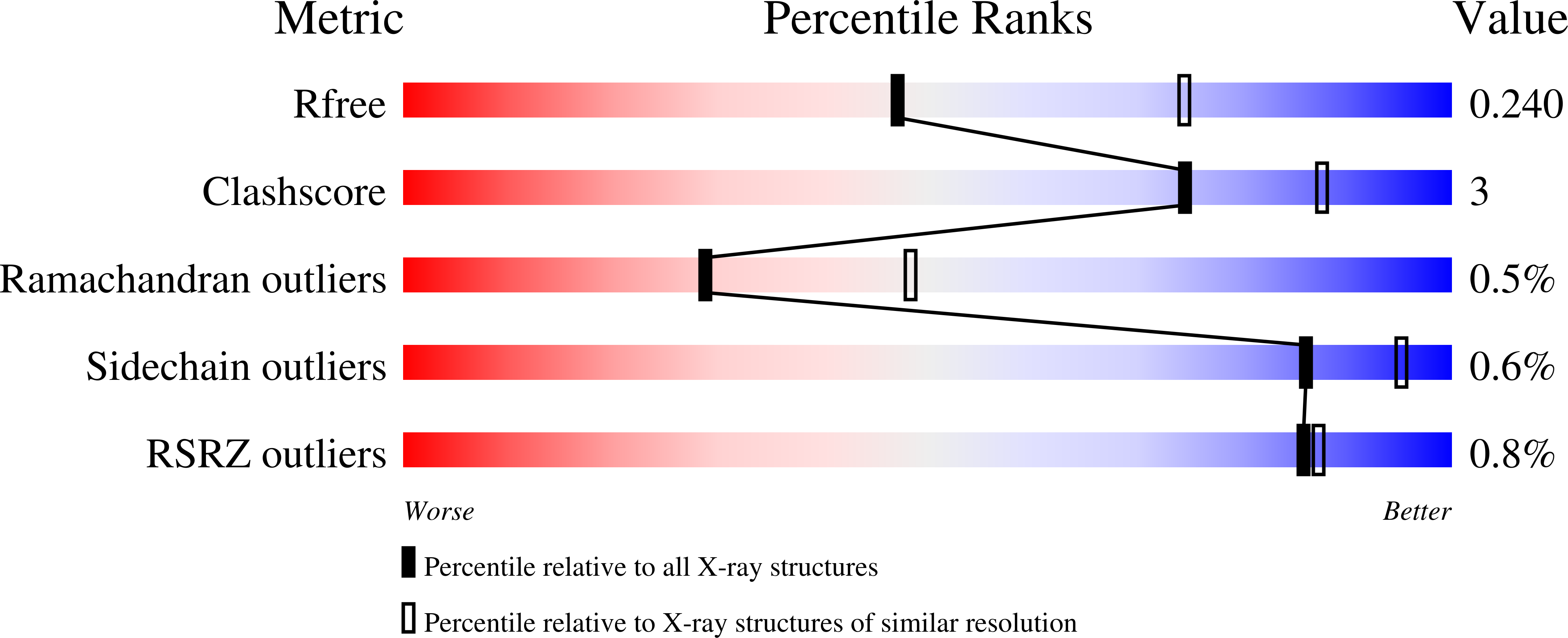
Deposition Date
2019-10-28
Release Date
2020-11-11
Last Version Date
2023-10-11
Entry Detail
PDB ID:
6USS
Keywords:
Title:
Catalytic S88C mutant of gut microbial sulfatase from Bacteroides fragilis CAG:558
Biological Source:
Source Organism(s):
Bacteroides fragilis CAG:558 (Taxon ID: 1263047)
Expression System(s):
Method Details:
Experimental Method:
Resolution:
2.50 Å
R-Value Free:
0.24
R-Value Work:
0.18
R-Value Observed:
0.18
Space Group:
C 2 2 21


